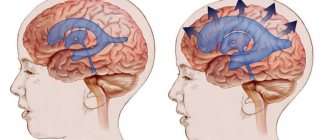Features of sleep in newborns
Sleeping and waking patterns of a newborn by week
In the first days of life, the baby sleeps almost all the time. He doesn't have a specific regime yet. A newborn does not understand when it is day and when it is night. Typically, a baby sleeps about 21–22 hours a day. This time is quite enough to restore strength and for the development of all body systems. Each newborn has different sleep and wake intervals. Breastfed babies may wake up after 1-1.5 hours to feed. Artificial babies usually sleep longer - 1.5–2 hours. During the daytime, a newborn needs about 9 hours of rest, and at night - 10–12 hours. A newborn's daily amount of sleep decreases as they grow older. Thus, babies aged two weeks sleep approximately 20 hours. During short periods of wakefulness, the baby suckles at the breast or formula and falls back to sleep almost immediately. Three-week-old babies gradually increase physical activity. They begin to explore the world, peer into the surrounding objects, raise their arms and legs. At this age, infants have slightly longer periods of wakefulness. They do not fall asleep immediately after feeding, but a little later, so the total amount of time spent sleeping per day decreases by about 1 hour. A one-month-old baby is already beginning to develop an approximate sleep pattern. The baby already feels the change of day and night. At this age, children sleep approximately 19 hours per day. At the same time, night sleep accounts for about 10-12 hours, and daytime rest - 7-9. The intervals between sleep and wakefulness gradually increase and reach 60–75 minutes. At this time, the baby eats and learns about the world around him.
Causes of restless sleep in a newborn
Due to the immaturity of the brain, deep (slow) sleep is absent in children under one month old. Until this age, there is only its prototype - the so-called quiet sleep, which lasts a few minutes. The rest of the time the baby sleeps superficially. This means that the newborn does not go into deep sleep. Brain maturation in infants occurs individually; the timing and speed of development may vary from child to child. On average, infants enter deep sleep between the ages of one and three months. This is the most important reason why a newborn writhes in his sleep and sleeps restlessly, but there are others:
1. The baby is hot. Parents often swaddle and wrap the baby. Due to discomfort, the newborn cries a lot in his sleep, tosses and turns, and wakes up more often than usual. 2. Overflowing diaper. It needs to be changed every 2-3 hours as babies defecate frequently. Urine and feces irritate the skin, so the child may experience itching and other discomfort in the perineal area. 3. Overexcitement. Some mothers think that if they put their baby to bed later, he will sleep longer than usual. This is a misconception. Due to overexcitation and extreme fatigue, the child falls asleep worse and sleeps restlessly. 4. Neurological problems. Children who have suffered a birth injury may experience increased intracranial pressure, headaches, and tearfulness. These babies often have sleep disturbances. 5. The baby is hungry. If the mother does not produce enough milk, the baby does not sleep well because he is constantly hungry. A newborn smacks his lips in his sleep, turns around, cries and wakes up prematurely. 6. Hypertonicity. Many infants have overstrained muscle fibers in their arms and legs. For this reason, young children often startle in their sleep and wake themselves up. By the age of two months, the tone weakens, so the baby sleeps more calmly. If your newborn throws his head back during sleep and shudders very often, you should show him to a doctor. Such symptoms may indicate neurological problems.
Attention! There is no reason to worry if a newborn baby sighs in his sleep, occasionally makes chaotic movements, sobs or groans. This activity is characteristic of the rapid phase of sleep, which in infants predominates over the slow phase.
Should you rock your newborn to sleep?
Newborns most often fall asleep without additional effort from their parents. The baby quickly falls asleep when nursing. However, this is not always the case. Many mothers face the problem that it is difficult to put their baby to sleep without motion sickness. Putting the baby to bed can take quite a long time, while the parents collapse from fatigue, and the baby does not fall asleep.
According to experts, a healthy and well-fed child, who is not bothered by anything, goes to sleep easily and quickly. He doesn't need rocking. It is enough for him to feel the mother’s warmth, which has a calming effect. If a newborn cannot fall asleep for a long time, the interval of wakefulness was probably too long and the child was overexcited. In this case, it is quite difficult to lay him down, but you can still avoid motion sickness if you resort to the following methods:
1. Free swaddling. Pediatricians recommend wrapping a newborn in a diaper, but not tying the arms and legs tightly. A soft tissue cocoon reminds a newborn of the sensations that accompanied him during intrauterine development. 2. Massage. Light massaging movements before bedtime relax the baby's muscles and help him calm down. 3. Swimming. Just being in warm water has a calming effect. If you wash your baby in a bath with herbal extracts added, he will fall asleep much faster and sleep longer.
Recommended sleeping positions for a newborn by month
Until the age of one and a half months, pediatricians recommend putting the baby to sleep only on his back. In the first days of his life, a newborn does not know how to hold his head straight; it turns on its own to the right or left. Thanks to this, when regurgitating, the mouth is freed from vomit. The side-lying position is suitable for babies aged two or three months who already know how to roll over on their own. Newborns are not placed in this way for several reasons:
1. This position creates additional pressure on the chest, making it more difficult for the baby to breathe; 2. The child may accidentally roll over and take a position for which he is not yet physiologically ready.
A newborn can sleep on his stomach for a short period of time and only under the supervision of his mother, who controls the position of his head. In other cases, this position is unacceptable due to the risk of suffocation. The position on the stomach with the knees bent is one of the most favorite for children over three months. In this position, the baby quickly falls asleep. In addition, this pose helps relieve gases and strengthen the muscles of the limbs. According to pediatricians, in order for a newborn to sleep well, you don’t need to wait until he’s tired. It is also important to create favorable conditions for normal rest - feed the baby, remove the light source and ensure silence.
Childhood sleep disorders
Insomnia in infants is a common phenomenon in pediatric practice. About 84% of parents regularly face the problem of sleep disturbances in their infants! Do not panic - healthy children under one year of age are characterized by frequent awakenings during sleep. This is natural: for the first six months of life, the baby does not sleep well at night and can wake up more than 3 times, which is due to the peculiarities of the structure of children's sleep. In the “fast” phase, which in babies prevails over the “slow” one, the threshold for awakening is extremely low. Statistics show that sleep disorders associated with waking up 2-3 times at night occur in every third child under one year of age. In the second year of life, the number of children waking up frequently at night decreases; at 3-4 years old, only 10% of children wake up several times at night. [4]
Sleep disturbance in a newborn is often associated with colic. Colic occurs in every fifth baby under 4 months of age and is manifested by restlessness, crying, screaming, more often in the evening hours. The cause of colic is the immaturity of the children's gastrointestinal tract. The discomfort and pain that occurs during this often lead to insomnia in infants.
Sleep disorder in an infant can also be caused by an allergy to cow's milk protein, which is part of dry nutritional formulas. The symptoms of this disease are very similar to colic, so identifying the real cause can be quite difficult. With an allergy to milk protein, the baby does not sleep, cries, becomes capricious and unhappy. Waking up more than 5 times a night, reducing the duration of sleep per day to 4-5 hours are typical manifestations in this case. The disease can be diagnosed using allergy tests. [5]
The most common in childhood are the so-called insomnias - regularly recurring disturbances in the duration and quality of sleep that occur despite the availability of suitable conditions and time. Insomnia can be behavioral, secondary and adaptive.
The first type of sleep disorder – behavioral – is characterized by problems in the child’s behavior when going to bed. The cause of insomnia in such infants is often the occurrence of incorrect sleep habits. The baby may get used to rocking in the crib, stroking when going to bed, falling asleep with a bottle or pacifier, and become capricious in the absence of the usual “stimulus.” Behavioral insomnia in infants can also occur in cases where parents do not establish a clear sleep schedule and time, and the place of bed varies from day to day.
The cause of sleep disorders in a baby who sleeps poorly can also be diseases of various types. In this case, so-called secondary insomnia develops - that is, sleep is disrupted due to disturbances in the body. Diseases can be congenital (for example, disorders of the nervous system), or acquired, temporary (ARVI, pain during teething, otitis media).
Sleep disturbances may also be associated with adaptation. When the environment changes (for example, when moving), separation from the mother, or changes in any external causes, sleep disturbances also occur.
One of the most dangerous sleep disorders in infancy is temporary cessation of breathing (or apnea) that lasts more than 10 seconds. The disorder occurs on average in 1-2% of children. An alarm bell is a child’s night snoring (more than 5 attacks per hour of sleep), especially if it repeats regularly in sleep! Sleep apnea requires contacting a specialist who can confirm or refute the diagnosis in a special pediatric laboratory. [6]
Sleep disorders in infants: when to sound the alarm?
For illnesses, problems with falling asleep/nighttime sleep or eating behavior.
Difficulty falling asleep and poor night sleep
Often, adults themselves accustom the child: with the best intentions, they often pick him up and try to immediately rock him to sleep at the first “whining.” Naturally, he will “defend” his right to get what he is used to.
The baby wakes up at night and cries until he is picked up and rocked to sleep, demands (crying) the presence of adults in the room while falling asleep
What to do?
Form the right associations:
* try not to rock or pick up the child unnecessarily;
* perform some ritual before bed (bathing, quiet singing);
* determine a permanent place to sleep;
* leave the child in bed (a feeling of connection with the parents is created): for infants - a diaper with the smell of the mother, for older children - a toy;
* try to approach the sleeping baby only when necessary;
* distinguish between night and daytime - at night, minimize communication with the child, when changing a diaper, do not turn on bright lights, speak quietly
Disturbed eating behavior
During night awakenings, the child requires something to drink or eat in order to fall asleep. What is important is not food and drink, but the imitation of falling asleep - attaching to the breast or sucking from a bottle. The volume of food consumed and liquid drunk can reach up to 1 liter per night.
What is the threat?
In a horizontal position, milk from the oral cavity can be thrown from the oral cavity into the inner ear through the canal connecting the nasopharynx and ear - otitis may develop.
Disruption of the body's hormonal cycles, since the digestive system must rest at night.
What to do?
Try to separate feeding and bedtime times by at least 30 minutes.
If the child has learned to sit, feed him at the table or in a chair/high chair. As he learns the new way of eating (especially in the evening), gradually reduce the number of feedings at night. Do not be afraid. The stomach of a child older than one month can hold enough food to last until the morning.
Child is sick
Most often, sleep disorders are caused by pathologies of the nervous system. The processes of excitation and inhibition are disrupted, muscle tone increases, and convulsions are possible.
What to do?
Consult your doctors. The baby needs examination and treatment.
Why does the baby sleep so much?
The first days the child wakes up only to eat. If nothing bothers him, then after a short time of wakefulness he again falls asleep.
Everyone knows that during sleep all body systems relax, and children still grow and gain weight. For infancy, this is perhaps the most important thing. All that is required of the baby is to eat well, sleep and grow in accordance with established standards.
The pattern of sleep and wakefulness is regulated by certain brain structures and hormones. The level of hormones responsible for sleep changes throughout the day. Naturally, this rhythm of day and night does not appear with birth. It must be developed within a certain time. And this time falls on the neonatal period.
Scientists have proven that the daytime and nighttime sleep patterns developed in the first weeks of a baby’s life play a big role in shaping his mental development in the future. Thus, children who did not get enough sleep in infancy become impulsive, uncontrollable, and have a lack of concentration in the future (the now common diagnosis is “attention deficit hyperactivity disorder”).
Sleep standards for newborns
The neonatal period is considered to be the moment from birth to the 28th day of the baby’s life. This is the most difficult period for both mother and child. The parents and the new family member meet. During this period, it is important to find an approach to the baby and carefully study his behavior. Usually in the first days, parents have many questions about caring for a newborn, especially if this is the first child in the family. One of the exciting questions is how much sleep a newborn should sleep.
It is considered normal if a child spends 18 to 20 hours sleeping in the first four weeks after birth. Small deviations of 1–2 hours are acceptable, since it would be wrong to equate all children with one.
Each newborn is individual. The duration of sleep depends on its physiological data. Some people need more time to rest and recuperate, others less.
If the baby does not have any diseases, then he sleeps exactly as much as his body needs.
What to do? The child does not sleep well during the day for the second time!
Parents often claim that their baby has difficulty getting to bed in the afternoon. There may be several reasons for this:
- Early awakening;
- Late bedtime the night before;
- Late morning sleep (instead of 9-10 hours at 10.30 or 11.00).
Excessive fatigue of the baby will not allow him to sleep normally during the second nap. Problems also arise during the transition period, when the baby’s body adjusts from two naps to one. This period can last from the 12th to the 21st month. At this time, the baby can sleep either once or twice. It happens that a baby needs a second nap, but he cannot fall asleep. In this case, the best solution would be to shift the nighttime bedtime to a time equal to the duration of the lost daytime sleep. The next day, try changing the start time of daytime naps and control the duration of the first nap within 1-1.5 hours.
Sleep disorders in a child, or why the baby does not sleep
Are difficulties falling asleep and restless sleep of a baby always a cause for concern?
In this article we will talk about the causes of sleep disturbances in a child, how much sleep a baby should sleep, and why sleep is restless and accompanied by frequent awakenings.
Contemplating a soundly sleeping baby is the highest degree of satisfaction for every parent. However, such an idyll is not easy to achieve, especially for children in the first year of life.
All children are different! It is enough to feed one baby before bedtime and put him to bed - peace of mind until the morning is guaranteed (with the exception of waking up for feeding). Another child, on the contrary, causes a lot of anxiety with crying and restless sleep, bringing family members to horror or panic! There are also children who fall asleep quickly, but wake up every hour at night.
You should start from each case specifically. After all, many factors influence a baby’s sleep : health status, temperature and humidity in the room, temperament, birth at term or prematurity.









